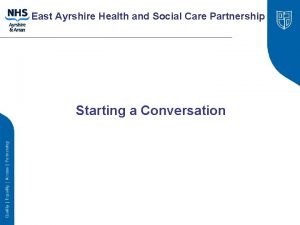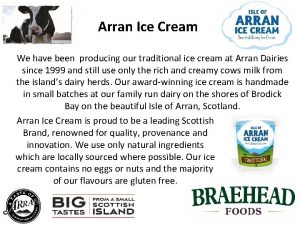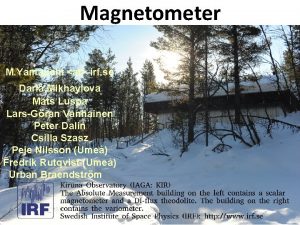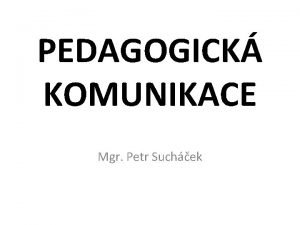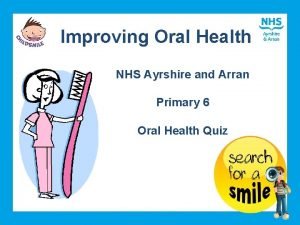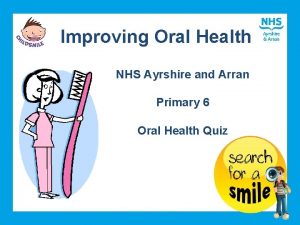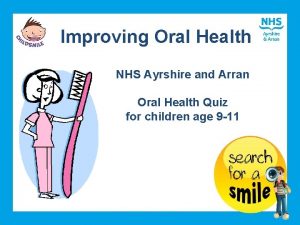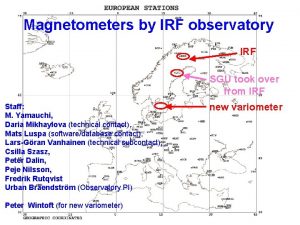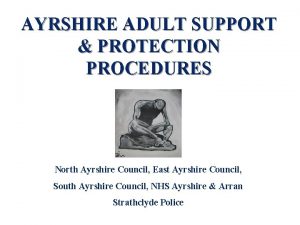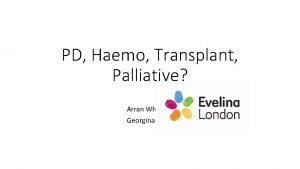Evaluating implementation of the IRF in Ayrshire Arran









- Slides: 9

Evaluating implementation of the IRF in Ayrshire & Arran, Highland, Lothian and Tayside IRF Clinical Event June 9, 2010 Presentation by Marian Craig

The evaluation team • Roddy Ferguson, Fortuno Consulting • Marian Craig, Falcon Craig Consulting • Dr Andrew Walker, University of Glasgow • Professor Sally Wyke, University of Stirling • Ailsa Stewart, Glasgow School of Social Work • Janet Biggar & Ruth Bryan, George Street Research Integrated Resource Framework Evaluation

Opportunities from the evaluation • Formative evaluation • Action research • Lessons for wider application • Set up a database for monitoring impact beyond the lifetime of this evaluation Integrated Resource Framework Evaluation

Challenges for the evaluation • Attribution • Timescale for measuring change • Different pace of change in different test sites • Judging when to assess impact • Capturing data on soft indicators Integrated Resource Framework Evaluation

The evaluation process • Stage 1 – Clarifying the brief March-April 2010 Evaluation team and SG Integrated Resourcing Team meet to clarify brief and agree scope • Stage 2 – Context analysis (March – May 2010) Learn from evidence review Meet IRF Programme Board – national stakeholders’ views & expectations Meet IRF Steering groups at each test site – local stakeholder views, local variation in approach, scope, focus Integrated Resource Framework Evaluation

The evaluation process • Stage 3 – Framework development (May 2010) National programme evaluation framework Four local project evaluation frameworks Evaluation tools to collect data and information Integrated Resource Framework Evaluation

The evaluation process • Stage 4 – Action research (June 2010 – August 2011) 3 phases: baseline, interim, final Gather quantitative and qualitative information from partners at each of the test sites Analyse and report back to test sites and SG at end of each phase Integrated Resource Framework Evaluation

The evaluation process • Stage 5 – Reporting (August 2011 – November 2011) Build databank of evidence throughout the evaluation Local report for each test site based on baseline, interim and final measurement reports Feedback seminar in each test site Final report plus 4 -page research summary Guidance notes on resource integration for: - NHS Boards - Local Authorities - Primary Care Providers - Elected members - Patients, families and carers Integrated Resource Framework Evaluation

Some key questions • • • To what extent are pilots successful in developing capitated, risk-adjusted budgets? Are those who make resource-use decisions i. e. clinical and care staff, involved in planning and implementing the pilot projects? Are information systems able to support integrated working? Is there clear leadership from elected members and Health Board members as well as senior managers? In the absence of real budgets, do governance arrangements enable investment upstream? Are processes and systems in place to measure the impact of change in the medium- and long-term? Integrated Resource Framework Evaluation

